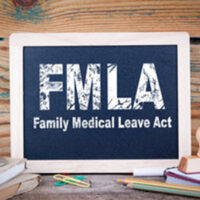Who is a Family Member Under the Family Medical Leave Act

Many people and many businesses are aware of the Family Medical Leave Act (FMLA). However, many are not aware that the law does extend to, and apply to grandparents—specifically, protecting and providing coverage to employees who seek leave to care for sick or ailing grandparents.
What the FMLA Does
The FMLA requires that employees be given leaves of absence for employees who:
- Are recovering from a serious health condition
- Are caring for a family member who has a serious health condition
- Are caring for, and binding with, a newborn child
- Are handling emergencies that may be related to military service
In Florida, an eligible employee can receive up to 12 weeks of leave over a 12 month period. The 12 weeks renews every year, so long as there remains a qualifying condition. The leave is a bit longer, 26 weeks, for those caring for family members in the military.
Disputes Over Who Family Is
Often, there is dispute as to what condition constitutes a “serious health condition.” But also common are disputes over who is covered—that is, what or who a “family member” is, for the purposes of the FMLA.
Certainly, an employee can’t get the benefits of the FMLA for just any member of a family. One question that arises is whether caring for a grandparent with a serious health condition is sufficient to get the FMLA benefits.
The confusion comes from the wording of the FMLA, which requires that employers provide leave to employees who need to care for a “spouse, parent, child, or sibling,” who is sick. The text does not say grandparent. However, the FMLA defines “parent” as not just the two biological parents, but to any person who acted like a parent (in loco parentis) to the employee. This usually means anyone who provided or provides day to day care for the employee.
Remember that even if federal law is not specific, local law can extend the FMLA’s protections. For example, in Miami, there is an ordinance that extends FMLA protections to grandparents, regardless of whether they acted in loco parentis or not.
What is In Loco Parentis?
With respect to a grandparent who acted in loco parentis, a court will look to how much support the grandparent provided to the child/employee, the extent that the child/employee was or is dependent on the grandparent, and the extent that common parental duties were carried out by the grandparent.
A non-biological parent can be in loco parentis, even if the child/employee has two biological parents who are active in the child/employee’s life. In other words, a covered employee is not limited to two parents.
As you can imagine, although we’re discussing grandparents, anybody who otherwise meets the definition can qualify as a parent, so long as they are in loco parentis. Guardians, or others who raised or raise the employee as family, even if not bound by blood, may qualify.
Call the West Palm Beach employment lawyers at Pike & Lustig to help with any employment law litigation problem.
Resource:
dol.gov/agencies/whd/fact-sheets/28B-fmla-in-loco-parentis
